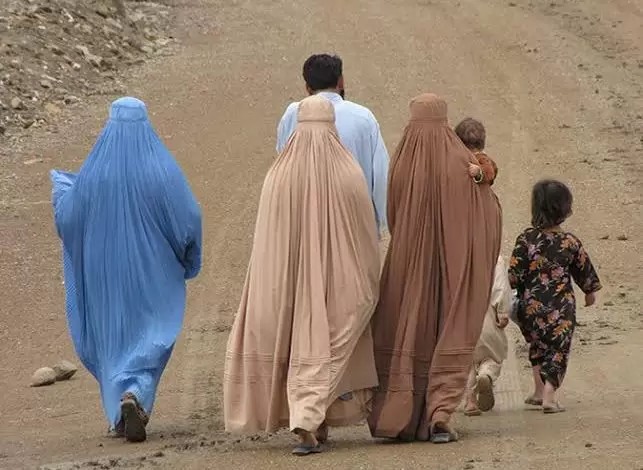
When we explore the world’s many cultures, each comes with its strengths and flaws. But one quality that instantly stands out in Pashtun society is the deep-rooted respect Pashtun men show toward women — a respect not born out of compulsion or display, but one woven into the fabric of their traditions, values, and sense of honor.
Contrary to common misconceptions, those who have interacted closely with Pashtun culture often acknowledge that Pashtun men view a woman’s honor as part of their own integrity.
This cultural norm plays out in everyday settings. In banks, government offices, or even crowded markets, when a woman steps in line, Pashtun men routinely step aside and politely offer her their place. “Baji, please go ahead,” they often say — not out of obligation, but as a gesture of sincere courtesy.
Also Read: Over 1,200 Afghans Repatriated via Torkham as Deportation Drive Continues
Public transport tells a similar story. Whether it’s a bus, a van, or a rickshaw, men quickly vacate seats for women — especially elderly women — often helping them sit comfortably. This is not a rare exception but a common expectation.
In public spaces such as hospitals, parks, or bazaars, Pashtun men often make way for women or step aside to ensure they can pass easily and with dignity. If a woman drops something, a man will likely rush to pick it up — not with inappropriate glances or behavior, but with genuine respect.
This deep-rooted value system is evident even in rural areas. If a man sees a woman — particularly one with a child or alone — standing by the roadside, he may stop to offer help, lift her load, or drop her off where she needs to go. These actions are not driven by pity but by a strong cultural sense of responsibility.
In private gatherings like weddings, Pashtun men make special arrangements for women — setting up separate, clean, and respectful spaces where they can feel comfortable. Men often step back to allow women the freedom to enjoy the occasion without discomfort or intrusion.
Inside homes, the reverence goes even deeper. A mother’s place is sacred, and so is that of a sister. Brothers care for their sisters’ needs — from education to protection — without her having to ask. Wives, too, are treated with dignity, their comfort and privacy held in high regard.
And when a woman is wronged — whether in a village or a neighborhood — Pashtun communities often rally around her. She is not left to suffer alone. In traditional jirgas, her voice is heard with seriousness, and her dignity fiercely defended.
These customs are proof that in Pashtun society, a woman is not seen as a weak being but as a person deserving of honor, care, and protection. And when women are given this respect, they thrive. The increasing number of educated women in Pashtun regions stands as evidence — showing that respect leads to empowerment, which in turn benefits the entire community.
It’s time we recognize and amplify this side of Pashtun society — one where men are not the rigid stereotypes often portrayed in mainstream media, but are instead individuals of loyalty, honor, and sincere respect for women.
Let this cultural strength be celebrated and shared, so that other societies may learn from this tradition of dignity. Societies flourish when men learn to respect women — and in this regard, Pashtun men lead by example.